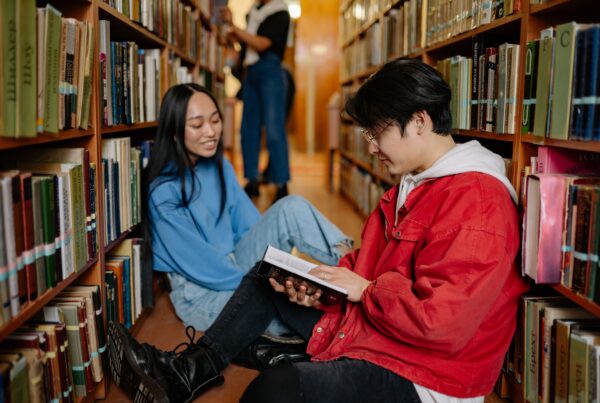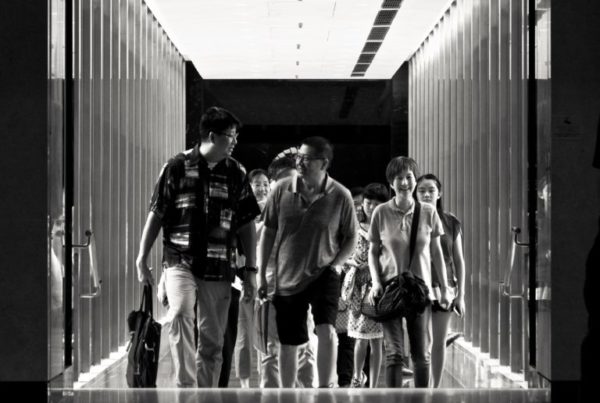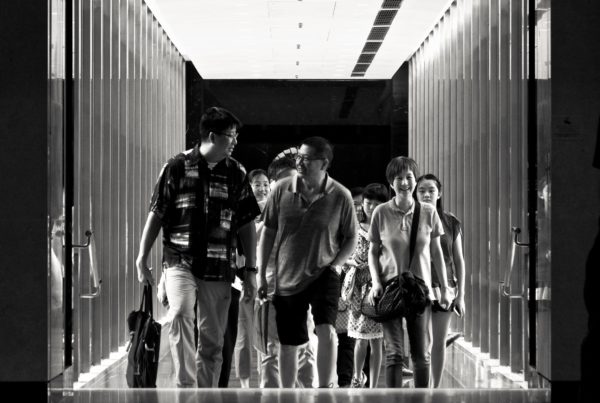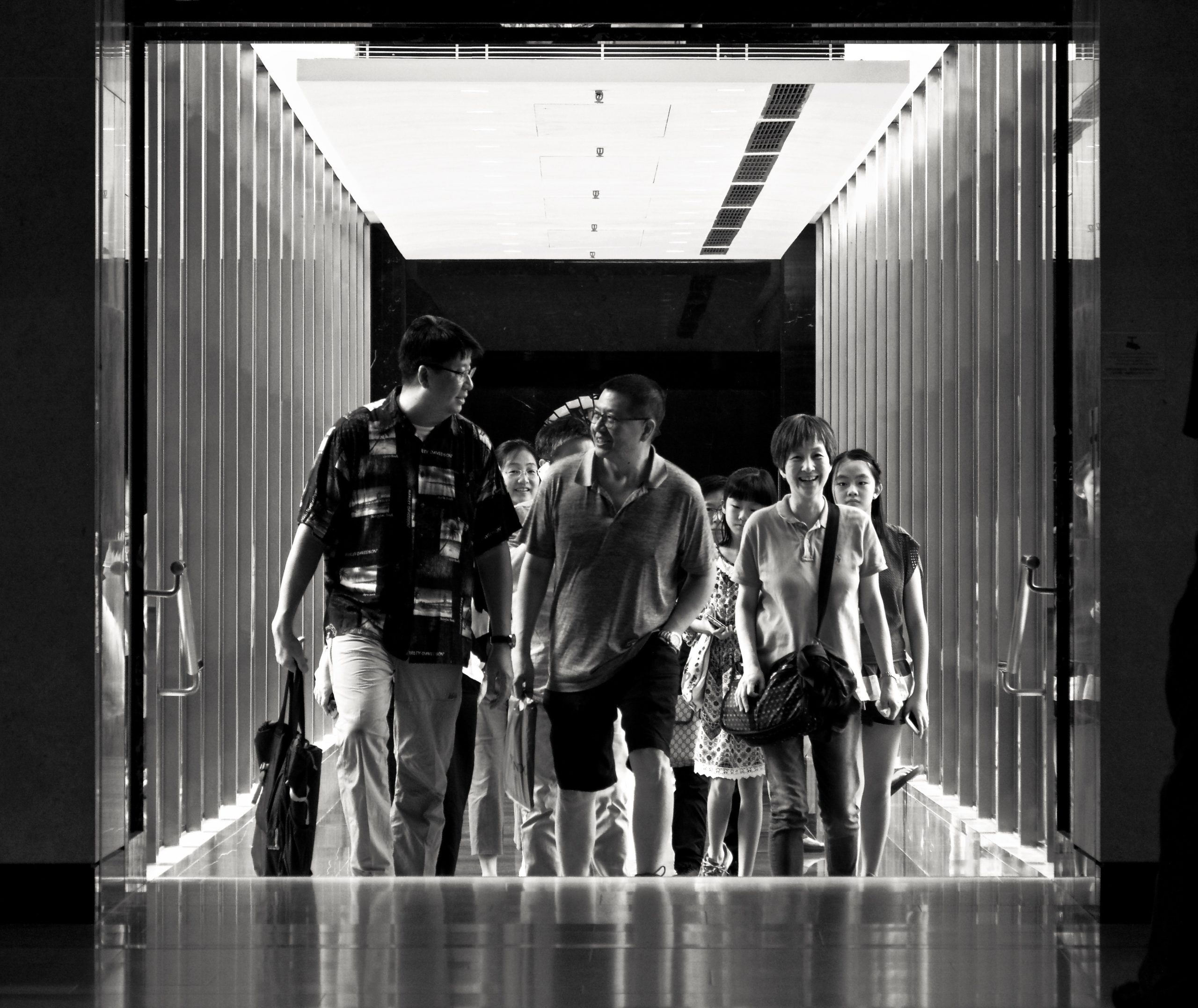
Many of the students that will obtain their bachelor’s degree this spring have followed the majority of their program online. As I approach the end of my bachelor in psychology, I wonder how other UvA students feel about graduating with a degree made in a pandemic.
Many of the students that will obtain their bachelor’s degree this spring have followed the majority of their program online. As I approach the end of my bachelor in psychology, I wonder how other UvA students feel about graduating with a degree made in a pandemic.
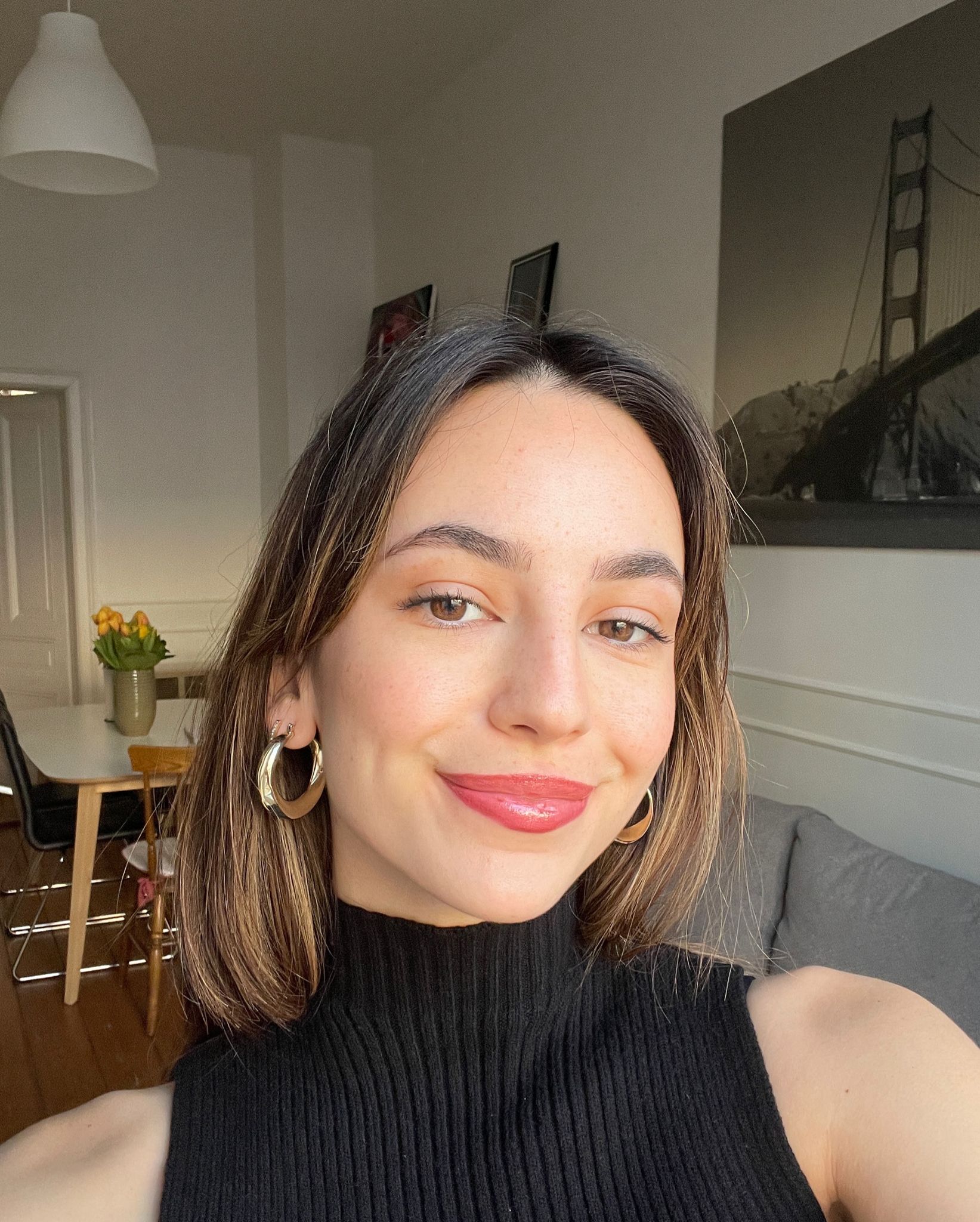
Sarah is a third-year psychology student who specialized in brain & cognition. She is currently following the minor ‘communication in the digital society’.
Spiegeloog: How did the pandemic influence your studies and your life as a student?
Sarah: ‘I have become a more organized person and got better at making my own schedule – and then actually sticking to it. I didn’t mind that university was online; it was very chill. At the same time, I didn’t make an insane amount of friends during my studies. I feel like I missed out on the ‘student life’ – especially because I went back to Germany for quite a while and only moved back to Amsterdam recently.’
Spiegeloog: Is there anything you wish you did differently during the pandemic?
Sarah: ‘If I had stayed in Amsterdam, maybe I would have experienced more of the typical student life.’
Spiegeloog: How does it feel to finish a programme you mainly followed during online university?
Sarah: ‘It definitely makes me feel proud!’
Spiegeloog: What will you do after you obtain your bachelors?
Sarah: ‘I applied for the master Brain & Cognition in Society at the UvA. If everything goes well and I get in, I will do that!’
Spiegeloog: Do you feel prepared to do this – considering your undergraduate programme was mostly online?
Sarah: ‘If I had to dissect brains in my masters, then maybe I wouldn’t feel so prepared because our labs were mostly closed during online university. But since my master of choice will not encompass this, I think I will be fine.’
Spiegeloog: Did the pandemic teach you any useful lessons for your future academic or professional career?
Sarah: ‘I have become more self-reliant. I learned how to push through and study for myself.’
Spiegeloog: Did you perceive your time as a bachelor’s student to pass fast or slow? And why?
Sarah: ‘While university happened online and I was back in Germany, everything seemed really long, and the days felt the same. However, the time spent in Amsterdam passed super fast!’
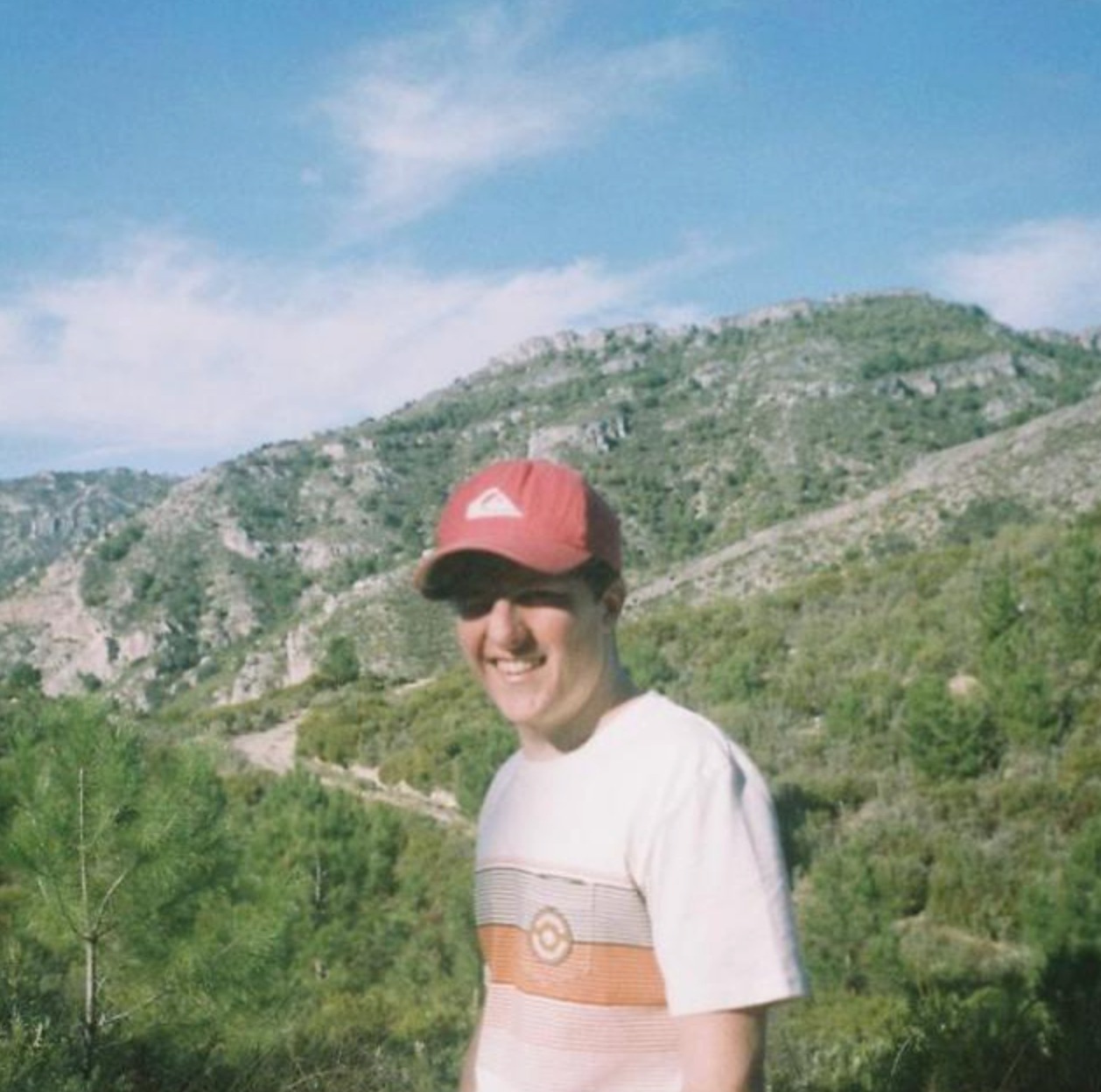
Arda is a third-year psychology student who specialized in social psychology and psychological methods. He is currently also doing a minor in anthropology and taking courses on sustainability.
Spiegeloog: How did the pandemic influence your studies and your life as a student?
Arda: ‘I wanted to make the most out of my time during the pandemic, so I signed up for a bunch of courses at the UvA. I was okay with it in the beginning, but after some time, the first solitude went away: usually, I need some structure in my days, by going to the library for example, and when that fell away for a while, online uni became rather depressing. I also feel like I missed out on traveling a lot due to travel restrictions between European countries.’
Spiegeloog: Is there anything you wish you did differently during the pandemic?
Arda: ‘That is difficult to say in hindsight. I do have regrets, but I am trying to be content with how it all turned out to be.’
Spiegeloog: How does it feel to finish a programme you mainly followed during online university?
Arda: ‘I feel like I don’t know what just happened – it all went so fast! For me, I recently started to feel like I am part of the psychology department. Seeing fellow students and professors and studying in the psychology building made me feel part of the psychology community. It’s great to see your lecturers every now and then on campus or to see them grab a cup of coffee – it feels like you’re meeting a celebrity. Graduating now just feels sad – I feel like I just started feeling a part of the psychology community.’
Spiegeloog: What will you do after you obtain your bachelors?
Arda: ‘I applied for the psychology research master at the UvA. But I need a scholarship to study here since I am a non-EU student and masters are quite expensive in the Netherlands. Therefore I am also looking at options in Belgium. Generally, I want to go into applied research in sustainability.’
Spiegeloog: Do you feel prepared to do this – considering your undergraduate programme was mostly online?
Arda: ‘Absolutely. I don’t think online university was bad or decreased the quality of the education. I feel like the UvA was relatively prepared. Besides, it’s not like our program required us to be in the lab or anything like that, and I also didn’t need to practice personal conversation like clinical psychologists, for example.’
Spiegeloog: Did the pandemic teach you any useful lessons for your future academic or professional career?
Arda: ‘It taught me the value of resilience. Although I am not saying I have resilience. There are things in life that we cannot control – but in Western societies, we place a lot of value on personal control. I think this mindset is actually extremely damaging and a huge burden on our shoulders: if something happens that we don’t want, we are blaming ourselves or other people for it, when really it is nobody’s fault. Sometimes shit just happens – and we need to accept that. I think we are more resilient if we don’t place all your bets on one horse; we have to distribute our resources of happiness across many things.’
Spiegeloog: Did you perceive your time as a bachelor’s student to pass fast or slow? And why?
Arda: ‘I will give it the classic answer: When we’re in it, it goes by fast, but when we look back we realize the beginning was such a long time ago. Also, I feel like we have space-dependent time perception. After living at home in Turkey for a year and then coming back to Amsterdam in March 2021, my brain felt like it was resuming to March 2020. I felt like my latest experiences in Amsterdam were a week ago, but really it’s been a year. So I feel like time perception is really dependent on spatial memory as well.’
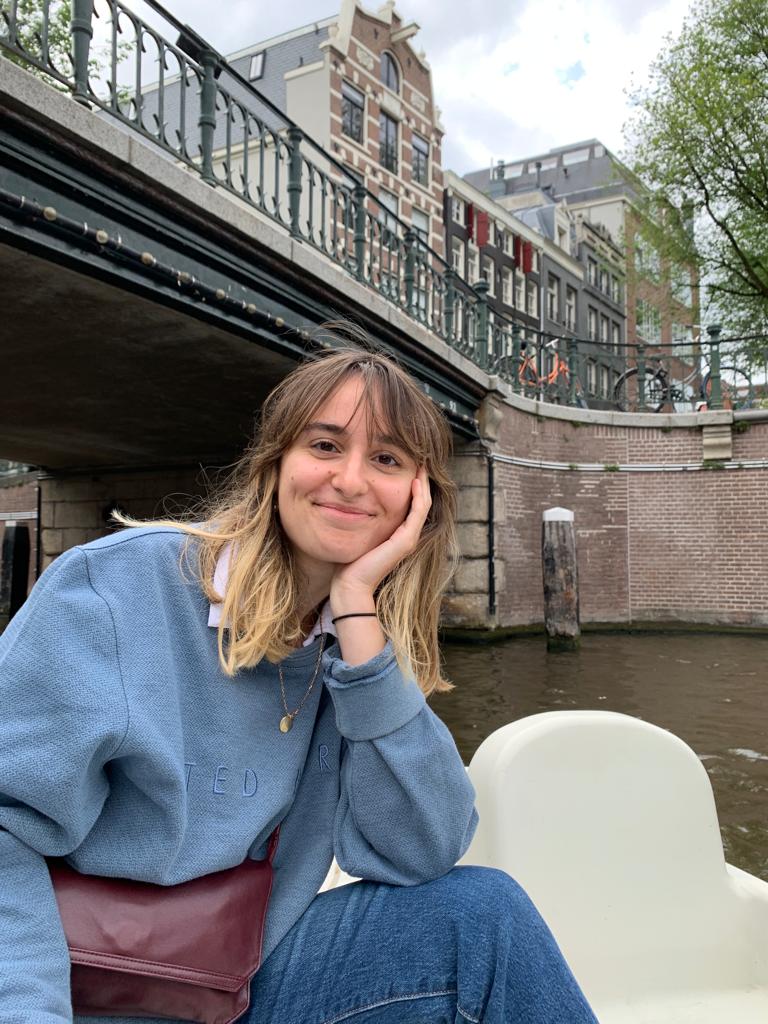
Szonja is a third-year economics and business economics student who is following the economics track. She minored in behavioral economics.
Spiegeloog: How did the pandemic influence your studies and your life as a student?
Szonja: ‘It had a huge impact. It impacted my studies in the beginning when our exams were canceled and there was great uncertainty about what’s next. Then they introduced proctorio, and with it came privacy issues, which was not nice. As for my student life, I stayed in Amsterdam while many of my friends went back home to other countries. We all thought it was just a one-month vacation in the beginning. But because there was so much uncertainty and nothing going on in Amsterdam, many of my friends did not come back at all. So the pandemic had an impact on my social life, but also internships or other career related opportunities fell away.’
Spiegeloog: Is there anything you wish you did differently during the pandemic?
Szonja: ‘I don’t want to regret stuff. But if I had to say something, it would be not pushing myself to do more and make more of my time in the first semester – but then again I was already pretty busy as it was, so I can’t really say that. Maybe I should have followed the online courses more proactively in terms of doing readings aside from the mandatory lectures and tutorials. But it is what it is!’
Spiegeloog: How does it feel to finish a programme you mainly followed during online university?
Szonja: ‘I feel disattached from the university – I don’t have a sense of belonging there. Due to online university, I was rarely on campus and I didnt have a social life with students, teachers or professors. Instead, my university was just Canvas.’
Spiegeloog: What will you do after you obtain your bachelors?
Szonja: ‘I want to get out and travel after all these restrictions from Covid! I also want to do an internship or do a job where I get to work in a small team.’
Spiegeloog: Do you feel prepared to do this – considering your undergraduate programme was mostly online?
Szonja: ‘Yes, I think I am. Our course was pretty theoretical but I am ready to see where I stand with that!’
Spiegeloog: Did the pandemic teach you any useful lessons for your future academic or professional career?
Szonja: ‘We were alone in this, had no real classmates or study groups. Teachers were just an email address and a face on a screen. Being able to take on a challenge like this may prepare me to take on other challenges later in my career.’
Spiegeloog: Did you perceive your time as a bachelor’s student to pass fast or slow? And why?
Szonja: ‘It went really fast for the first 6 months prior to Covid. Then everything stopped and felt slow for the next one and a half years. But now the last year is going super fast again! Overall it went pretty fast, I think, and it’s hard to adjust to the fact that I am almost done.’

Sarah is a third-year psychology student who specialized in brain & cognition. She is currently following the minor ‘communication in the digital society’.
Spiegeloog: How did the pandemic influence your studies and your life as a student?
Sarah: ‘I have become a more organized person and got better at making my own schedule – and then actually sticking to it. I didn’t mind that university was online; it was very chill. At the same time, I didn’t make an insane amount of friends during my studies. I feel like I missed out on the ‘student life’ – especially because I went back to Germany for quite a while and only moved back to Amsterdam recently.’
Spiegeloog: Is there anything you wish you did differently during the pandemic?
Sarah: ‘If I had stayed in Amsterdam, maybe I would have experienced more of the typical student life.’
Spiegeloog: How does it feel to finish a programme you mainly followed during online university?
Sarah: ‘It definitely makes me feel proud!’
Spiegeloog: What will you do after you obtain your bachelors?
Sarah: ‘I applied for the master Brain & Cognition in Society at the UvA. If everything goes well and I get in, I will do that!’
Spiegeloog: Do you feel prepared to do this – considering your undergraduate programme was mostly online?
Sarah: ‘If I had to dissect brains in my masters, then maybe I wouldn’t feel so prepared because our labs were mostly closed during online university. But since my master of choice will not encompass this, I think I will be fine.’
Spiegeloog: Did the pandemic teach you any useful lessons for your future academic or professional career?
Sarah: ‘I have become more self-reliant. I learned how to push through and study for myself.’
Spiegeloog: Did you perceive your time as a bachelor’s student to pass fast or slow? And why?
Sarah: ‘While university happened online and I was back in Germany, everything seemed really long, and the days felt the same. However, the time spent in Amsterdam passed super fast!’

Arda is a third-year psychology student who specialized in social psychology and psychological methods. He is currently also doing a minor in anthropology and taking courses on sustainability.
Spiegeloog: How did the pandemic influence your studies and your life as a student?
Arda: ‘I wanted to make the most out of my time during the pandemic, so I signed up for a bunch of courses at the UvA. I was okay with it in the beginning, but after some time, the first solitude went away: usually, I need some structure in my days, by going to the library for example, and when that fell away for a while, online uni became rather depressing. I also feel like I missed out on traveling a lot due to travel restrictions between European countries.’
Spiegeloog: Is there anything you wish you did differently during the pandemic?
Arda: ‘That is difficult to say in hindsight. I do have regrets, but I am trying to be content with how it all turned out to be.’
Spiegeloog: How does it feel to finish a programme you mainly followed during online university?
Arda: ‘I feel like I don’t know what just happened – it all went so fast! For me, I recently started to feel like I am part of the psychology department. Seeing fellow students and professors and studying in the psychology building made me feel part of the psychology community. It’s great to see your lecturers every now and then on campus or to see them grab a cup of coffee – it feels like you’re meeting a celebrity. Graduating now just feels sad – I feel like I just started feeling a part of the psychology community.’
Spiegeloog: What will you do after you obtain your bachelors?
Arda: ‘I applied for the psychology research master at the UvA. But I need a scholarship to study here since I am a non-EU student and masters are quite expensive in the Netherlands. Therefore I am also looking at options in Belgium. Generally, I want to go into applied research in sustainability.’
Spiegeloog: Do you feel prepared to do this – considering your undergraduate programme was mostly online?
Arda: ‘Absolutely. I don’t think online university was bad or decreased the quality of the education. I feel like the UvA was relatively prepared. Besides, it’s not like our program required us to be in the lab or anything like that, and I also didn’t need to practice personal conversation like clinical psychologists, for example.’
Spiegeloog: Did the pandemic teach you any useful lessons for your future academic or professional career?
Arda: ‘It taught me the value of resilience. Although I am not saying I have resilience. There are things in life that we cannot control – but in Western societies, we place a lot of value on personal control. I think this mindset is actually extremely damaging and a huge burden on our shoulders: if something happens that we don’t want, we are blaming ourselves or other people for it, when really it is nobody’s fault. Sometimes shit just happens – and we need to accept that. I think we are more resilient if we don’t place all your bets on one horse; we have to distribute our resources of happiness across many things.’
Spiegeloog: Did you perceive your time as a bachelor’s student to pass fast or slow? And why?
Arda: ‘I will give it the classic answer: When we’re in it, it goes by fast, but when we look back we realize the beginning was such a long time ago. Also, I feel like we have space-dependent time perception. After living at home in Turkey for a year and then coming back to Amsterdam in March 2021, my brain felt like it was resuming to March 2020. I felt like my latest experiences in Amsterdam were a week ago, but really it’s been a year. So I feel like time perception is really dependent on spatial memory as well.’

Szonja is a third-year economics and business economics student who is following the economics track. She minored in behavioral economics.
Spiegeloog: How did the pandemic influence your studies and your life as a student?
Szonja: ‘It had a huge impact. It impacted my studies in the beginning when our exams were canceled and there was great uncertainty about what’s next. Then they introduced proctorio, and with it came privacy issues, which was not nice. As for my student life, I stayed in Amsterdam while many of my friends went back home to other countries. We all thought it was just a one-month vacation in the beginning. But because there was so much uncertainty and nothing going on in Amsterdam, many of my friends did not come back at all. So the pandemic had an impact on my social life, but also internships or other career related opportunities fell away.’
Spiegeloog: Is there anything you wish you did differently during the pandemic?
Szonja: ‘I don’t want to regret stuff. But if I had to say something, it would be not pushing myself to do more and make more of my time in the first semester – but then again I was already pretty busy as it was, so I can’t really say that. Maybe I should have followed the online courses more proactively in terms of doing readings aside from the mandatory lectures and tutorials. But it is what it is!’
Spiegeloog: How does it feel to finish a programme you mainly followed during online university?
Szonja: ‘I feel disattached from the university – I don’t have a sense of belonging there. Due to online university, I was rarely on campus and I didnt have a social life with students, teachers or professors. Instead, my university was just Canvas.’
Spiegeloog: What will you do after you obtain your bachelors?
Szonja: ‘I want to get out and travel after all these restrictions from Covid! I also want to do an internship or do a job where I get to work in a small team.’
Spiegeloog: Do you feel prepared to do this – considering your undergraduate programme was mostly online?
Szonja: ‘Yes, I think I am. Our course was pretty theoretical but I am ready to see where I stand with that!’
Spiegeloog: Did the pandemic teach you any useful lessons for your future academic or professional career?
Szonja: ‘We were alone in this, had no real classmates or study groups. Teachers were just an email address and a face on a screen. Being able to take on a challenge like this may prepare me to take on other challenges later in my career.’
Spiegeloog: Did you perceive your time as a bachelor’s student to pass fast or slow? And why?
Szonja: ‘It went really fast for the first 6 months prior to Covid. Then everything stopped and felt slow for the next one and a half years. But now the last year is going super fast again! Overall it went pretty fast, I think, and it’s hard to adjust to the fact that I am almost done.’

